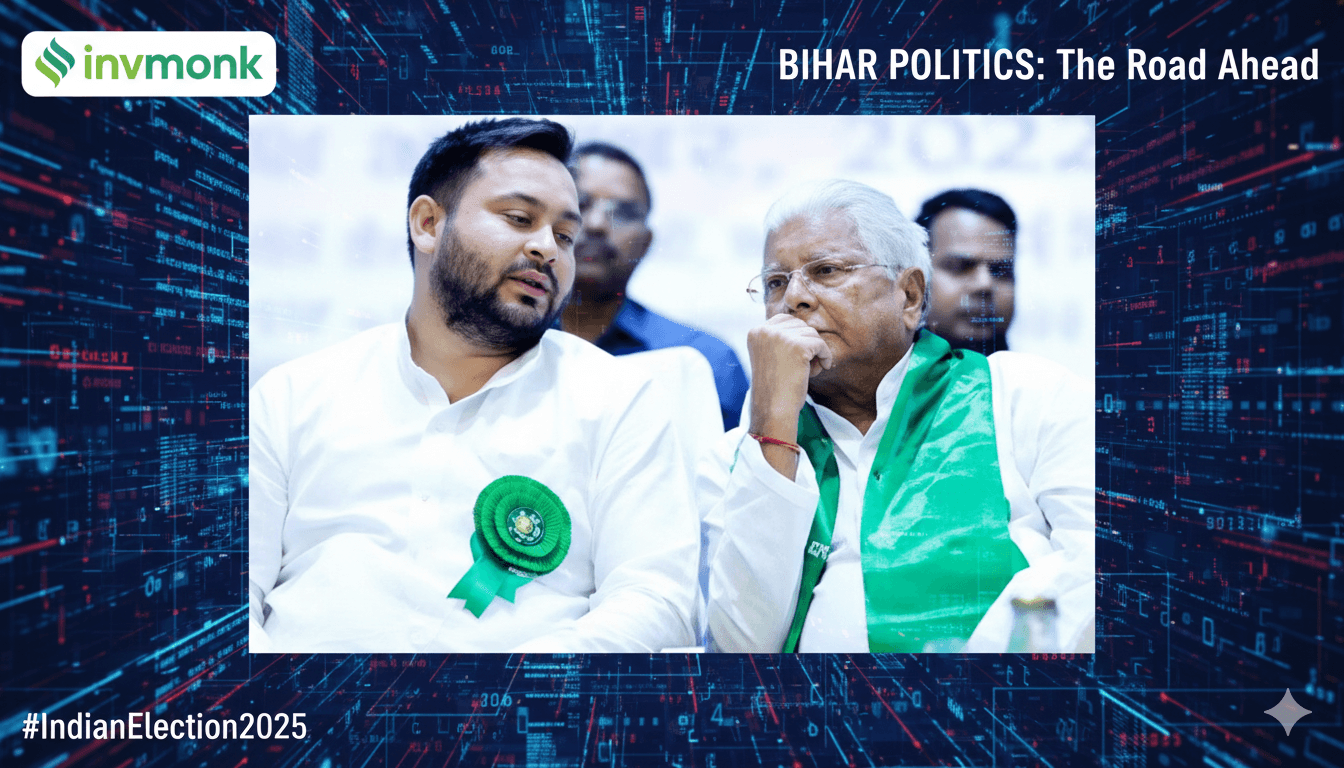In Bihar’s political narrative, one of the more striking patterns is how deeply family lineage continues to shape electoral fortunes. As the state gears up for its next phase of governance, the numbers tell a revealing story: in the outgoing 243-member assembly, about 70 legislators—nearly 29%—carry a legacy tag, meaning they are from political families. Among one of the major parties, this figure rises to over 42% of its MLAs.
Family Names, Political Power
Take the prominent party with 71 legislators: approximately 30 of them hail from dynastic backgrounds, which means the party’s nearly half of its legislative strength is tied to inherited political space. Other parties in the state also show significant shares of such ‘family’ representation, though varying in magnitude. Across governing formations, names passed down through generations are now doing the rounds in constituencies, party offices and even ministerial berths.
Why It Matters
- Access & Advantage: When political capital is inherited—through name recognition, local networks and party clout—the barrier to entry for newcomers is higher.
- Representation Concerns: Voters who seek fresh voices may feel squeezed out when many seats are effectively held by a handful of families.
- Performance vs Inheritance: Legacy candidates may have advantages at the start, but public expectations may catch up fast. Merit, delivery and accountability become crucial.
- Perception of Democracy: Large family presence in law-making challenges the narrative of equal opportunity in politics. When “parivar” (family) becomes shorthand for power, democracy risks becoming legacy-driven in perception.
The Bihar Context
Bihar’s electoral landscape is heavily shaped by caste, identity and local networks. In such a setting, a surname can act as both brand and battleground. Many constituencies remain under the sway of families that have held power, built networks and cultivated voters over decades. This means that when a ticket is given to a scion, the party is banking on continuity, not necessarily novelty.
Yet, this continuity also carries risk. Younger voters, urbanizing regions and sections of civil society are increasingly asking for performance, transparency and fresh talent. When elections come, legacy will coexist with expectations of change.
Party Strategies & Voter Dilemmas
For parties, dynastic candidates offer predictability: established vote banks, funds, and local standing. That said, they also bring baggage—entitlements, perceptions of complacency, and resistance from grassroots cadres. For voters, the choice becomes layered: Do you elect a name you know, or a newcomer with ideas? Should familiarity trump innovation?
In the current electoral cycle, this is where the narrative becomes key: promises of capability, clarity about performance and ability to connect with younger, aspirational voters may redefine what legacy means.
Looking Ahead: Renewal or Reinforcement?
The data suggest that legacy politics in Bihar is not shrinking—it remains large and deeply embedded. But what might change is the quality of questions voters ask: Will I get better governance? Will new entrants challenge the old order? Will parties open pathways to talent beyond families?
While dynastic politics will likely persist, what matters is whether it dominates or shares the political space with new voices. The upcoming assembly elections will show whether voters simply accept names or demand performance.
Final Word
In Bihar, when a significant portion of the legislature comes from political families, the issue isn’t just numbers. It’s about how democracy functions, who gets represented, and what expectations citizens hold. Family ties in politics aren’t inherently bad—but when they become the default route to power, the risk is that leadership becomes predictable rather than dynamic.
For Bihar’s voters and parties alike, the question remains: legacy or performance? In the end, names may open doors—but only action and accountability can keep them open.

